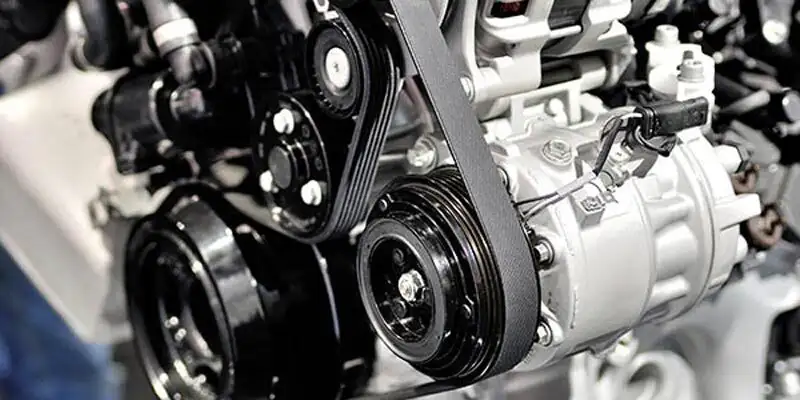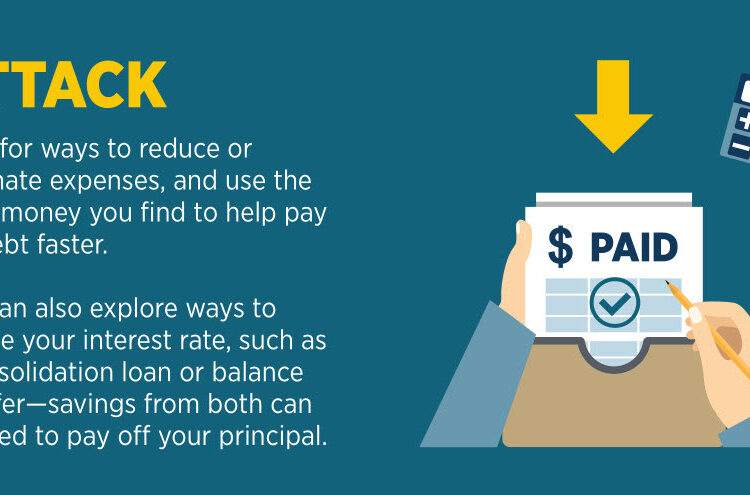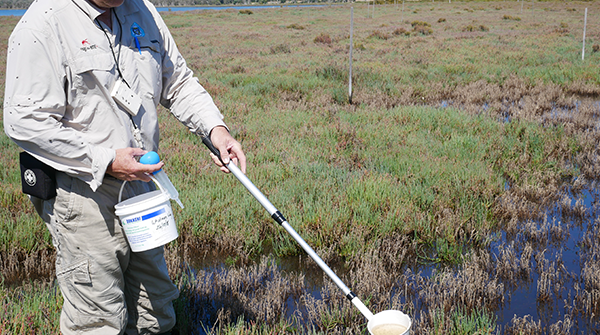If your air conditioning unit isn’t cooling your home as effectively as it used to, your AC compressor may be the culprit. Replacing an AC compressor is a significant task, but understanding the process can help ensure you make the best decision for your home. In this article, we’ll discuss common issues leading to AC compressor replacement, offer real-life case studies, and provide a comprehensive guide to help homeowners like you.
Toc
- 1. Introduction to AC Compressor Replacement
- 2. Common Issues Leading to AC Compressor Replacement
- 3. Key Benefits of Professional AC Compressor Replacement
- 4. Bài viết liên quan:
- 5. Steps to Replace an AC Compressor
- 6. Cost of AC Compressor Replacements
- 7. Case Studies of Successful AC Compressor Replacements
- 8. Conclusion
Introduction to AC Compressor Replacement
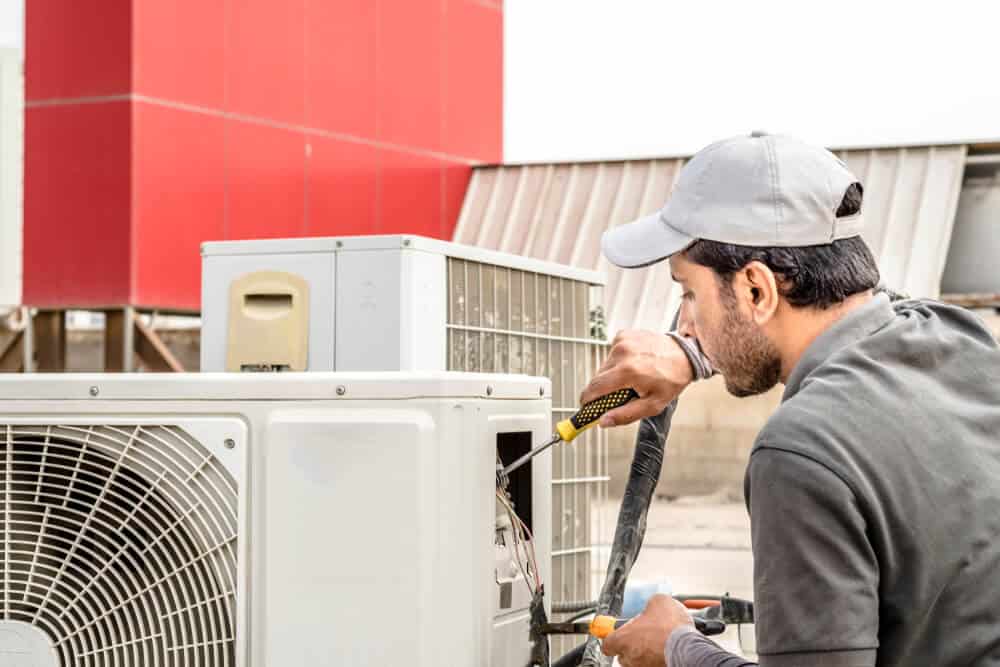
The compressor is a crucial component of your air conditioning system. It compresses refrigerant gas, which then passes through the condenser coils to release heat and cool the air that’s blown into your home. If the compressor fails, it can lead to a lack of cool air or even complete system failure.
What is an AC Compressor?
An AC compressor is often referred to as the heart of the air conditioning system. Its primary function is to circulate the refrigerant throughout the system, enabling the cooling process. By compressing the refrigerant gas, the compressor increases its pressure and temperature, allowing it to flow into the condenser where it releases heat. The compressor operates in a continuous cycle, drawing in low-pressure refrigerant from the evaporator coil and expelling high-pressure gas to the condenser. Understanding how the compressor works can help you diagnose issues and understand when it might need replacement. Proper maintenance and timely repairs can extend the life of your compressor, but it’s essential to know the signs of failure, such as strange noises, leaks, or inconsistent cooling.
Signs That Your AC Compressor May Need Replacement
There are several signs that may indicate your AC compressor needs replacement:
- Lack of cool air: If you notice warm or hot air coming from your vents when the AC is running, it could be a sign that the compressor isn’t working correctly.
- Loud noises: Unusual noises such as grinding, squealing, or clanking coming from your AC unit may indicate a failing compressor.
- Leaks: If you see refrigerant leaking from your outdoor unit, it could be a sign that the compressor is damaged and needs replacement.
- Tripped circuit breaker: A faulty compressor can cause an electrical overload, leading to a tripped circuit breaker.
If you notice any of these signs, it’s crucial to contact a professional HVAC technician for inspection and potential replacement.
Common Issues Leading to AC Compressor Replacement
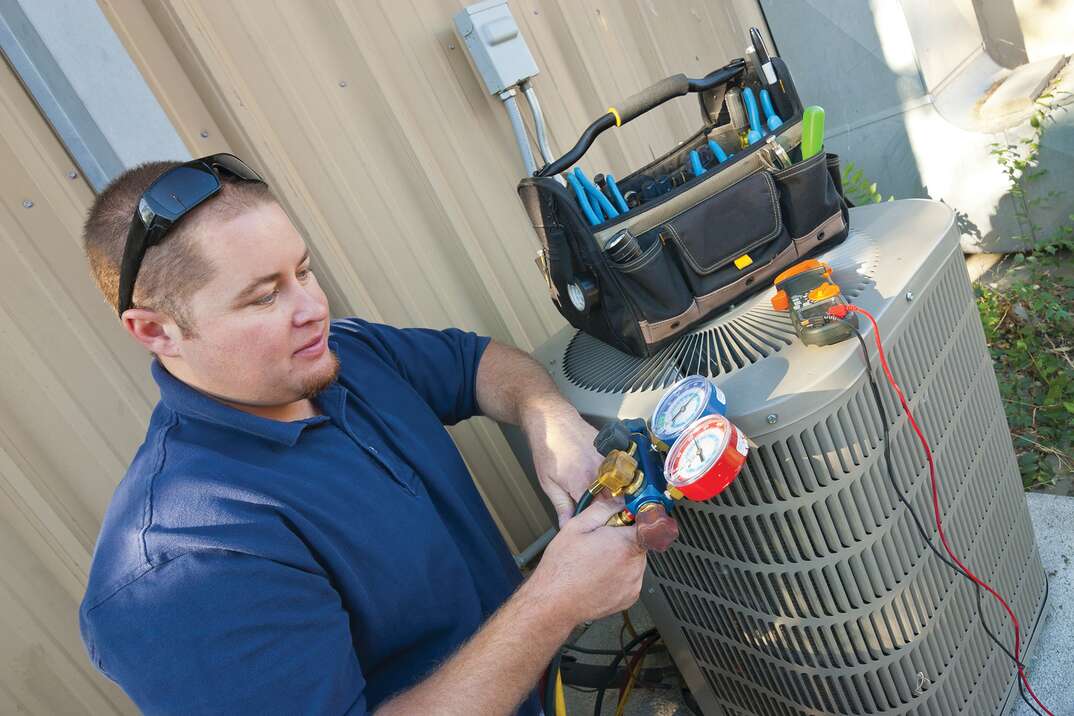
Several issues can lead to the premature failure of an AC compressor, necessitating its replacement. One common problem is lack of refrigerant, often due to leaks within the system. If the refrigerant level drops too low, the compressor may be forced to work harder, which can result in overheating and eventual failure. Another issue is contaminated refrigerant, which can occur if foreign substances enter the system. This contamination can cause wear and tear on the compressor’s mechanical parts, leading to breakdowns.
Overheating
One of the most frequent issues is overheating. This can occur due to various reasons, such as:
- Insufficient refrigerant levels causing the compressor to work harder.
- Blocked or dirty coils reducing heat dissipation.
- Inadequate ventilation around the AC unit.
Overheating can lead to damage in various components of the compressor, including the motor, wiring, and capacitors. Regular maintenance, such as cleaning coils and ensuring proper ventilation, can help prevent overheating.
Electrical Issues
Electrical issues are also common causes of AC compressor failure. These may include:
- Power surges, which can cause electrical overload and damage the compressor’s wiring or controls.
- Faulty start capacitors that prevent the compressor from starting correctly.
- Worn-out contactors that control power supply to the compressor.
Regular inspections by a professional technician can identify these potential problems early on and mitigate them before they lead to complete compressor failure.
Refrigerant Leaks
Refrigerant leaks are another common problem. They not only reduce cooling efficiency but also pose environmental hazards. Look for signs like:
- Hissing or bubbling noises from the AC unit.
- Ice buildup on the evaporator coils.
- Reduced cooling performance despite the thermostat settings.
If you suspect a refrigerant leak, it’s essential to contact an HVAC technician immediately for repairs and possible compressor replacement.
Key Benefits of Professional AC Compressor Replacement
Choosing to hire a professional for your AC compressor replacement offers several advantages.
Saves Time and Money
Saves Time and Money
Opting for a professional AC compressor replacement can ultimately save you both time and money. Professionals have the expertise and experience to diagnose and troubleshoot issues quickly, ensuring a timely and efficient replacement process. Attempting to replace the compressor yourself may lead to errors, ultimately resulting in further repair costs or delays. Additionally, professionals often have access to industry-grade tools and equipment, which can significantly expedite the process.
Ensures Proper Installation
A qualified technician will ensure that the new compressor is installed correctly and complies with manufacturer specifications. Proper installation is critical for optimal performance and longevity of your air conditioning unit. An incorrectly installed compressor can lead to a range of subsequent issues, from inefficiency to complete system failure, which can be costly to resolve.
Warranty Protection
Hiring a professional may also provide you with warranty protection on both the new compressor and the installation work. This means that if something goes wrong due to faulty installation or product defects, you might be covered for repairs or even replacements without incurring additional costs. Ensuring that the work is done by a licensed technician helps protect your investment in your home’s comfort.
Bài viết liên quan:
- https://shopmayanh.vn/protect-your-home-the-complete-guide-to-termite-and-pest-control/
- https://shopmayanh.vn/chloes-auto-repair-your-trusted-local-vehicle-experts/
- https://shopmayanh.vn/defeating-the-buzz-a-homeowners-guide-to-mosquito-larvae-control/
- https://shopmayanh.vn/unlocking-the-power-of-triple-aaa-a-car-owners-ultimate-guide/
Steps to Replace an AC Compressor
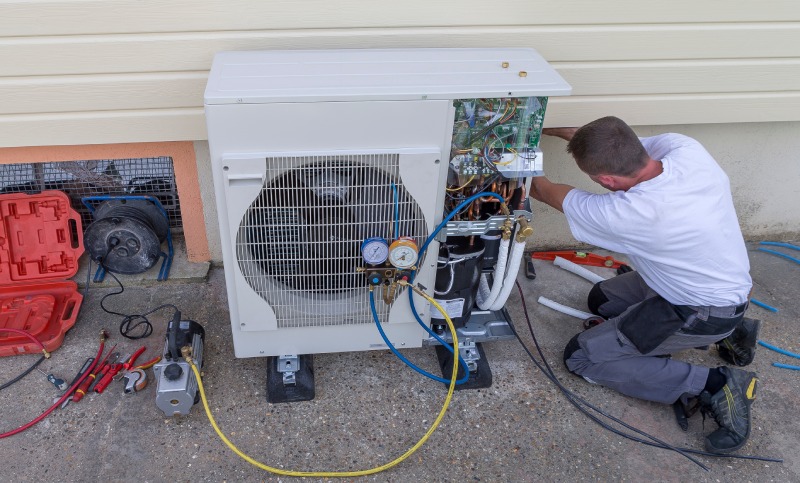
While it’s always recommended to hire a professional for AC compressor replacement, here are the basic steps involved in the process:
Step 1: Diagnose the Problem
Before proceeding with the replacement, it’s essential to accurately diagnose the problem. This typically involves checking the power supply, examining the thermostat settings, and listening for unusual sounds. A thorough evaluation will help confirm whether the compressor is indeed the source of the issue or if other components are at fault.
Step 2: Prepare the Workspace
To ensure a smooth replacement process, prepare the workspace. Turn off the power to the AC unit at the circuit breaker, and remove any decorative covers or panels that may obstruct access to the compressor. Make sure you have the necessary tools on hand, including wrenches, screwdrivers, and safety gear.
Step 3: Remove the Old Compressor
Carefully disconnect the refrigerant lines, electrical connections, and mounting bolts holding the old compressor in place. It’s crucial to manage refrigerant responsibly, as it can be harmful to the environment. It’s advisable to have a certified professional handle refrigerant recovery.
Step 4: Install the New Compressor
Position the new compressor in place and secure it with the mounting bolts. Reconnect the refrigerant lines, ensuring that all connections are tight to prevent leaks. Follow the manufacturer’s specifications for any additional components that may need to be connected, such as new capacitors or filters.
Step 5: Test the System
Once everything is connected, restore power to the AC unit. Check for any signs of abnormal operation, such as unusual noises or refrigerant leaks. Allow the system to run for a while, monitoring the cooling efficiency. It may take some time for the system to achieve optimal performance, but if problems persist, consider reaching out to a professional for further assistance.
Cost of AC Compressor Replacements
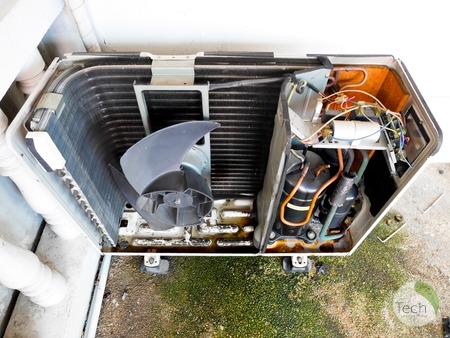
The cost of replacing an AC compressor can vary widely based on several factors, including the brand and model of the unit, the region, and the extent of any additional repairs needed. On average, homeowners can expect to pay anywhere from $1,200 to $2,500 for parts and labor. This estimate typically includes the price of the new compressor, installation fees, and any ancillary services such as refrigerant recharging or system cleaning.
Factors Influencing Cost
- Type of Compressor: Different types of compressors (e.g., scroll, reciprocating) can have varying prices, with some being more expensive than others due to their efficiency or technology.
- Labor Costs: Hiring a licensed HVAC technician adds to the overall cost, and labor rates can differ significantly by location. Urban areas may see higher costs due to the demand for skilled professionals.
- Additional Repairs: If there are underlying issues, such as leaks, that need to be addressed during the replacement, this can increase the final bill. It’s essential to factor in these potential repairs when budgeting for a compressor replacement.
- Warranty: Many manufacturers offer warranties on new compressors, which can alleviate some costs if a replacement fails within the warranty period. Checking the warranty details before making a purchase can help ensure long-term protection.
Understanding these factors can aid homeowners in making informed decisions regarding their AC compressor replacement and help them budget accordingly. It’s advisable to get estimates from multiple professionals to ensure competitive pricing while considering the value of quality installation and service.
Real example of cost of AC Compressor Replacements
To provide a clearer perspective, let’s consider a real-world scenario involving an AC compressor replacement. In a mid-sized home in the Midwest, the homeowner faced a malfunctioning compressor during peak summer. After consulting three different HVAC contractors, the estimates varied as follows:
- Contractor A quoted $1,500 for a mid-range scroll compressor, which included installation and refrigerant recharging.
- Contractor B offered a premium compressor option for $2,000, promising greater energy efficiency and a longer warranty period.
- Contractor C provided the lowest estimate of $1,200 but mentioned that additional repairs may be necessary after inspection of the overall system.
Ultimately, the homeowner opted for Contractor A, valuing the balance between cost and efficiency. This decision reflected not only the quoted price but also the professional reputation of the contractor and the details of the warranty offered for the installation and compressor. Such real examples underscore the importance of comparing estimates, understanding what is included in the costs, and prioritising quality service when investing in replacement equipment for HVAC systems.
Case Studies of Successful AC Compressor Replacements
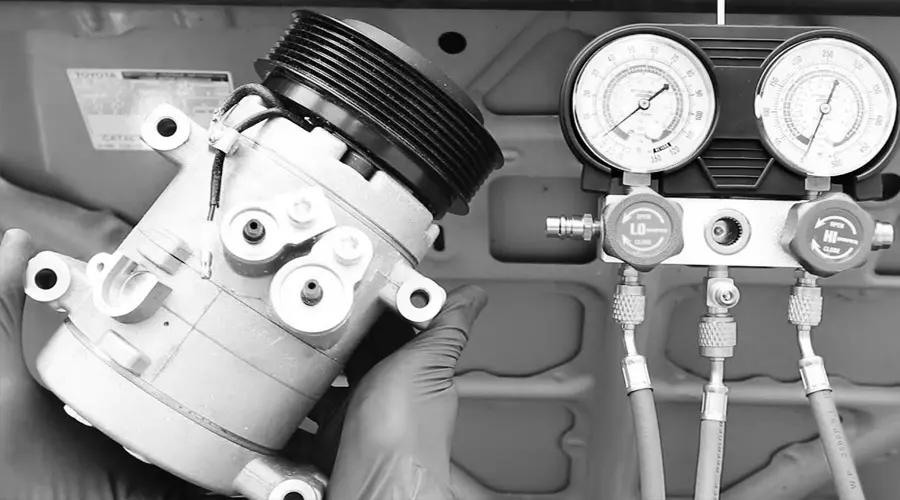
Case Study 1: Overheating in a Hot, Dry Climate
A family living in a hot, dry climate experienced frequent overheating in their AC unit. After consulting with a professional HVAC technician, they decided on an AC compressor replacement. The new compressor significantly improved their home’s cooling efficiency and reduced their electricity bills.
Case Study 2: Electrical Failure in an Office Building
An office building suffered from inconsistent cooling and discovered their AC compressor was failing due to electrical issues. A timely replacement not only restored comfortable working conditions but also improved the overall air quality in the space.
Case Study 3: Refrigerant Leak in a Retail Store
A retail store detected a refrigerant leak in their AC unit during a routine maintenance check. Immediate repair and compressor replacement ensured uninterrupted cooling, maintaining a comfortable shopping environment for their customers.
Conclusion
In summary, replacing an AC compressor is a critical maintenance task that ensures the efficient operation of air conditioning systems. Homeowners should be proactive in understanding the signs of a failing compressor, recognizing the importance of timely replacements, and being informed about the associated costs. By delving into specific case studies, it’s evident how impactful a new compressor can be, not only enhancing cooling efficiency but also contributing to energy savings and improved indoor air quality. Prioritising professional assessments and obtaining estimates from multiple contractors can significantly aid in making an informed decision. Ultimately, investing in a quality compressor replacement will lead to a more comfortable living environment while potentially lowering energy expenses in the long run.

